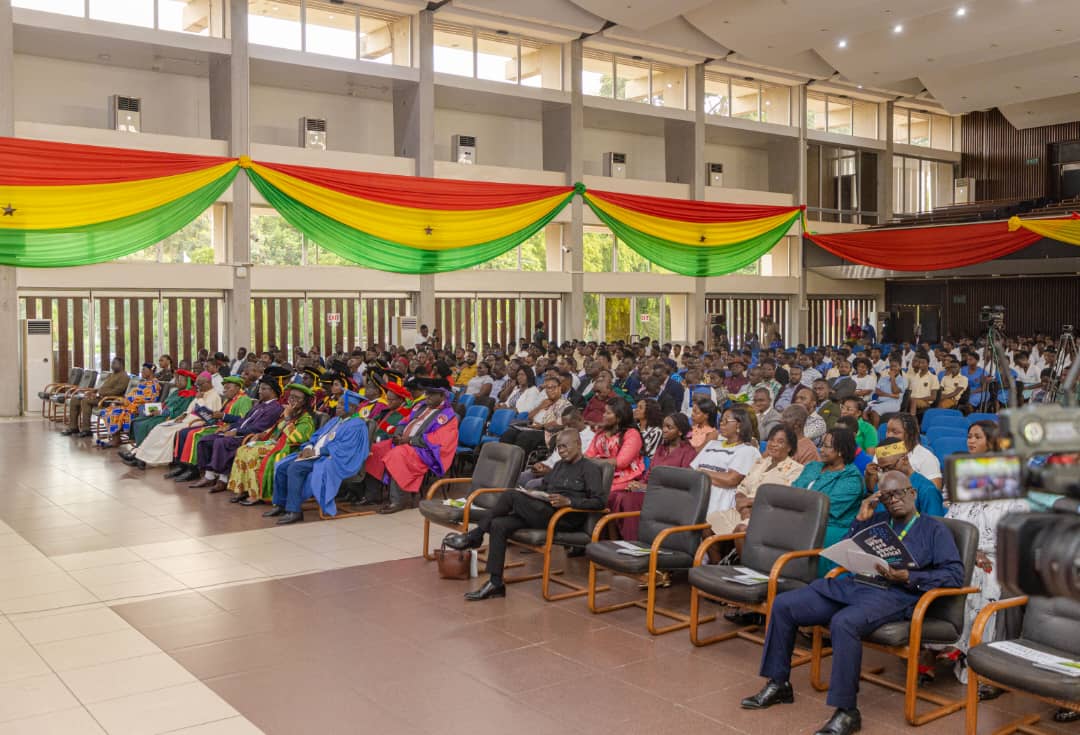A professor of International Marketing and Strategy at KNUST, Prof. Nathaniel Boso, has expressed dissatisfaction with the less attention given to African business and management research over the years.
He expressed concern that research and tertiary institutions have not delved deeply into studying African businesses and promoting them on a global scale, despite Africa’s unique and empirically rich setting capable of enriching international business knowledge development.
During his professorial inaugural lecture on the topic “International Business: Why Care about Africa?” at the Kwame Nkrumah University of Science and Technology, Professor Nathaniel Boso emphasized Africa’s potential contribution to international business and research due to its unique settings.
The professor has thus proposed the reorientation of African economies and businesses to increase investment in knowledge-intensive products and services to boost the exportation of high-value services and minimize imports.

“Globally, the export of services is growing by 7.7% per annum and is valued at US$5.8 trillion, according to the United Nations Conference on Trade and Development. While many developed economies are heavy exporters of high-value services, Africa remains a heavy exporter of commodities, and its import of services is growing faster than the export of services,” he noted.
Furthermore, he suggested, “Ghana Export Promotion Authority could be mandated to liaise with higher education service providers to research into long-term market potential for their services. Subsequently, Ghana and other African countries can begin to produce, warehouse and export higher education professionals to regional markets where such services are most needed in exchange for export earnings. I would recommend a similar strategic orientation towards healthcare, tourism, and IT services.”

To promote the growth and development of businesses, the professor urged the destigmatization of failure to enhance risk-taking and innovation in African societies.
“Many societies in Africa do not accept failure. The educational system in many African countries is such that failure is punished and stigmatized. Business owners can end up in jail if their businesses fail. In some African societies, schoolchildren are likely to receive corporal punishment if they fail an exam. Parents are likely to scold their children for failing school exams.
“As a result, African children grow up scared of the notion of failure. Yet, we know that approximately 65% of new businesses fail during the first 10 years, and only 25% make it to 15 years or more. We also know that, on average, 50 to 90% of new products fail. Thus, a contention is that new business success and new product innovation are noted to be predicated on the propensity to take a risk and fail, and learn from the failure to do something better,” the professor bemoaned.
Prof. Nathaniel, also emphasised the prioritisation of research quality in higher education institutions to promote innovation, indicating that, “Africa’s position as the next frontier in international business and trade can only be boosted if quality of research on African businesses and environment are perceived to be at the same standard as research from other parts of the world. This, therefore, calls for national policy reorientation across the continent that prioritizes, finances and rewards high-quality research and evidence-based decision-making in business organizations and public institutions.”

—–
Explore the world of impactful news with CitiNewsroom on WhatsApp!
Click on the link to join the Citi Newsroom channel for curated, meaningful stories tailored just for YOU: https://whatsapp.com/channel/0029VaCYzPRAYlUPudDDe53x
No spams, just the stories that truly matter! #StayInformed #CitiNewsroom #CNRDigital















